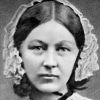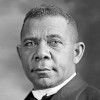The great calamity of the passions is not the torments they cause but the wrongs, the base actions that they lead one to commit, and which degrade men. Without these hindrances the advantages of the passions would far outweigh those of cold reason, which renders no one happy. The passions make a man live, wisdom merely makes him last.
[Le grand malheur des passions n’est pas dans les tourmens qu’elles causent, mais dans les fautes, dans les turpitudes qu’elles font commettre, et qui dégradent l’homme. Sans ces inconvéniens, elles auraient trop d’avantage sur la froide raison, qui ne rend point heureux. Les passions font vivre l’homme, la sagesse le fait seulement durer.]
Nicolas Chamfort (1741-1794) French writer, epigrammist (b. Nicolas-Sébastien Roch)
Products of Perfected Civilization [Produits de la Civilisation Perfectionée], Part 1 “Maxims and Thoughts [Maximes et Pensées],” ch. 2, ¶ 118 (1795) [tr. Merwin (1969)]
(Source)
(Source (French)). Alternate translations:
The great evil of the passions does not lie in the torments which they bring upon men, but in the faults and shameful actions they cause him to commit. Were it not for this drawback they would have too great an advantage over cold reason, which can never be productive of happiness. His passions make man live, his wisdom only makes him last.
[tr. Mathers (1926)]
The unfortunate thing about passions is not the misery they make one commit, and which degrade man. Without these disadvantages, they would overpower cold reason, which does not in the least a source of happiness. Passions make men live, wisdom only makes the endure.
[tr. Pearson (1973)]
The great disaster of passions is not the torment they cause, but the debasing errors and depravity into which they lead men. Without these drawbacks, passion would enjoy many advantages over cold reason, which never produces happiness. Passions enable men to live, wisdom merely enables them to survive.
[tr. Dusinberre (1992)]
The great misfortune of passions does not come from the torments that they cause, but from the base things they make a person do, and which degrade him. Without these inconveniences, they would have too many advantages over cold reason, which never makes people happy. Passions make a man live, wisdom and facts only make him endure.
[tr. Siniscalchi (1994)]
Quotations about:
degradation
Note not all quotations have been tagged, so Search may find additional quotes on this topic.
When an ox enters a palace, it doesn’t become a king but the palace turns into a barn.
[Öküz saraya çıkınca kral olmaz. Ama saray ahır olur.]
(Other Authors and Sources)
Circassian proverb
This "Turkish" (properly Circassian or Adyghe) proverb (source) can be found with a variety of forms and choice of livestock. It was famously used by journalist Sedef Kabaş in early 2022:
A bull does not become king just by entering the palace, but the palace becomes a barn.
Kabas was jailed for supposedly insulting Turkish President Erdoğan with the reference.
Based on Kabas' usage, it was reworked on 23 January 2022 by Elizabeth Bangs, a British academic consultant, with British Prime Minister Boris Johnson in mind, and posted on Twitter into a more viral form:
When a clown moves into a palace he does not become a king. The palace becomes a circus.
The clown version is now widely misattributed as a Turkish proverb.
More notes:
Whoever, in a prosperous station plac’d,
Is slothful and regardless of his household,
Intent on nought except bewitching song,
Will by his family, his friends, his country,
Be held in no esteem: for the best gifts
Of nature ineffectual prove, when pleasure,
Degrading pleasure, occupies the soul.[ἁνὴρ γὰρ ὅστις εὖ βίον κεκτηµένος
τὰ µὲν κατ’ οἴκους ἀµελίᾳ παρεὶς ἐᾷ,
µολπαῖσι δ’ ἡσθεὶς τοῦτ’ ἀεὶ θηρεύεται,
ἀγρὸς µὲν οἴκοι κἂν πόλει γενήσεται,
φίλοισι δ’οὐδείς· ἡ φύσις γὰρ οἴχεται,
ὅταν γλυκείας ἡδονῆς ἥσσων τις ᾗ.]Euripides (485?-406? BC) Greek tragic dramatist
Antiope [Αντιοπη], frag. 187 (TGF, Kannicht) [Zethus/ΖΗΘΟΣ] (c. 410 BC) [tr. Wodhall (1809)]
(Source)
(Source (Greek)). Barnes frag. 16, Musgrave frag. 29. See also frag. 200. Alternate translation:
For any man who well acquires a livelihood
and permits its decline with his indifference,
and who delights himself with song and dance
and is always chasing it, will be idle at home and in the polis,
and a nobody for his friends; for a man’s nature is lost
when he is conquered by the sweetness of pleasure.
[tr. Will (2015)]
What the horrors of war are, no one can imagine — they are not wounds & blood & fever, spotted & low, or dysentery chronic & acute, cold & heat & famine. They are intoxication, drunken brutality, demoralization & disorder on the part of the inferior — jealousies, meanness, indifference, selfish brutality on the part of the superior.
Florence Nightingale (1820-1910) English social reformer, statistician, founder of modern nursing
Letter to her family (5 May 1855)
(Source)
Nothing should be made by man’s labour which is not worth making; or which must be made by labour degrading to the makers.
William Morris (1834-1896) British textile designer, writer, socialist activist
Art and Socialism (1884)
(Source)
I would permit no man, no matter what his colour might be, to narrow and degrade my soul by making me hate him.
Booker T. Washington (1856-1915) American educator, writer
Up from Slavery, ch. 11 (1901)
(Source)
This has been paraphrased in various ways, and is the source of Martin Luther King, Jr's quote he attributed to Washington: "Let no man pull you so low as to make you hate him" (e.g., Stride Toward Freedom, ch. 6 (1958)). King used this or variants of this paraphrase frequently in his speeches, though it was only in his early activism that he referenced Washington by name.
I cannot criticize my parents for hoping that I would never experience poverty. They had been poor themselves, and I have since been poor. And I quite agree with them that it is not an ennobling experience. Poverty entails fear, and stress, and sometimes depression. It means a thousand petty humiliations and hardships. Climbing out of poverty by your own efforts, that is something on which to pride yourself. But poverty itself is romanticized only by fools.
Joanne "Jo" Rowling (b. 1965) British novelist [writes as J. K. Rowling and Robert Galbraith]
“The Fringe Benefits of Failure and the Importance of Imagination,” Commencement Address, Harvard (5 Jun 2008)
(Source)
I set down in my notebooks, not once or twice, but in a dozen places, the facts I had seen. I knew that suffering did not ennoble; it degraded. It made men selfish, mean, petty and suspicious. It absorbed them in small things. It did not make them more than men; it made them less than men.
W. Somerset Maugham (1874-1965) English novelist and playwright [William Somerset Maugham]
The Summing Up, ch. 19 (1938)
(Source)
On his experiences as a medical student and the patients he observed.









